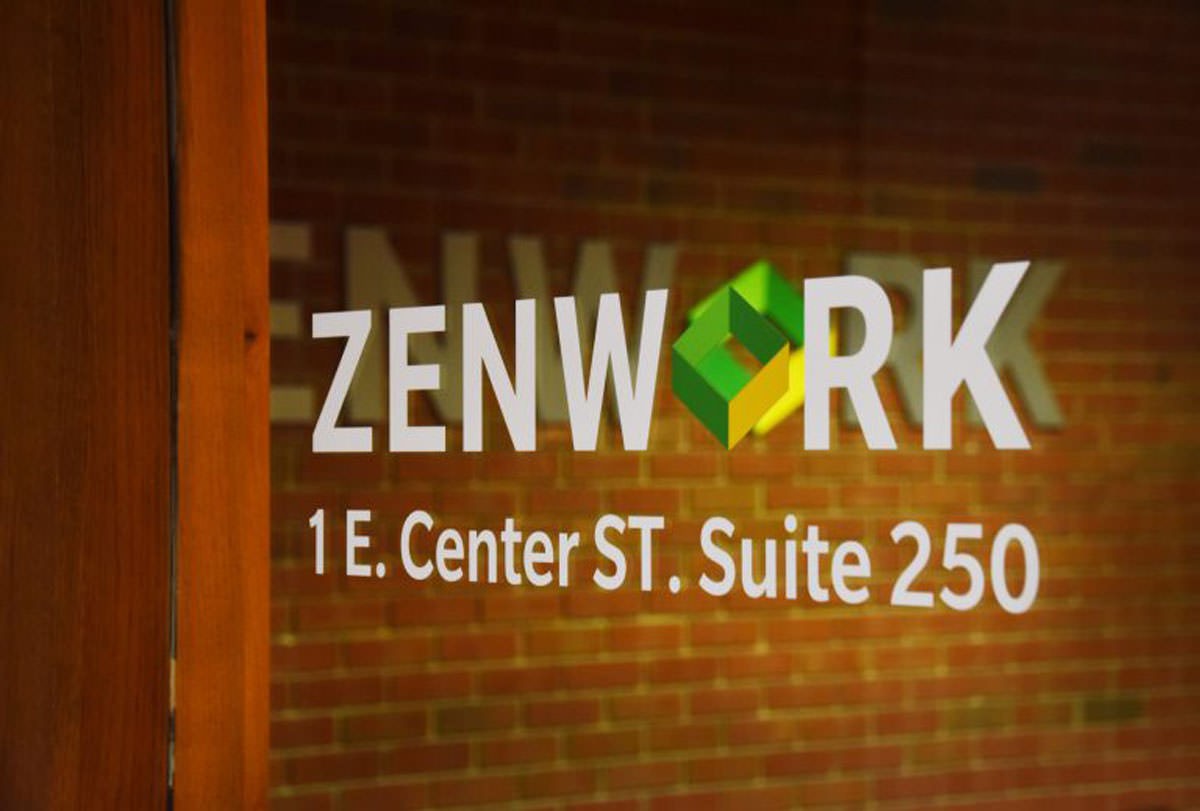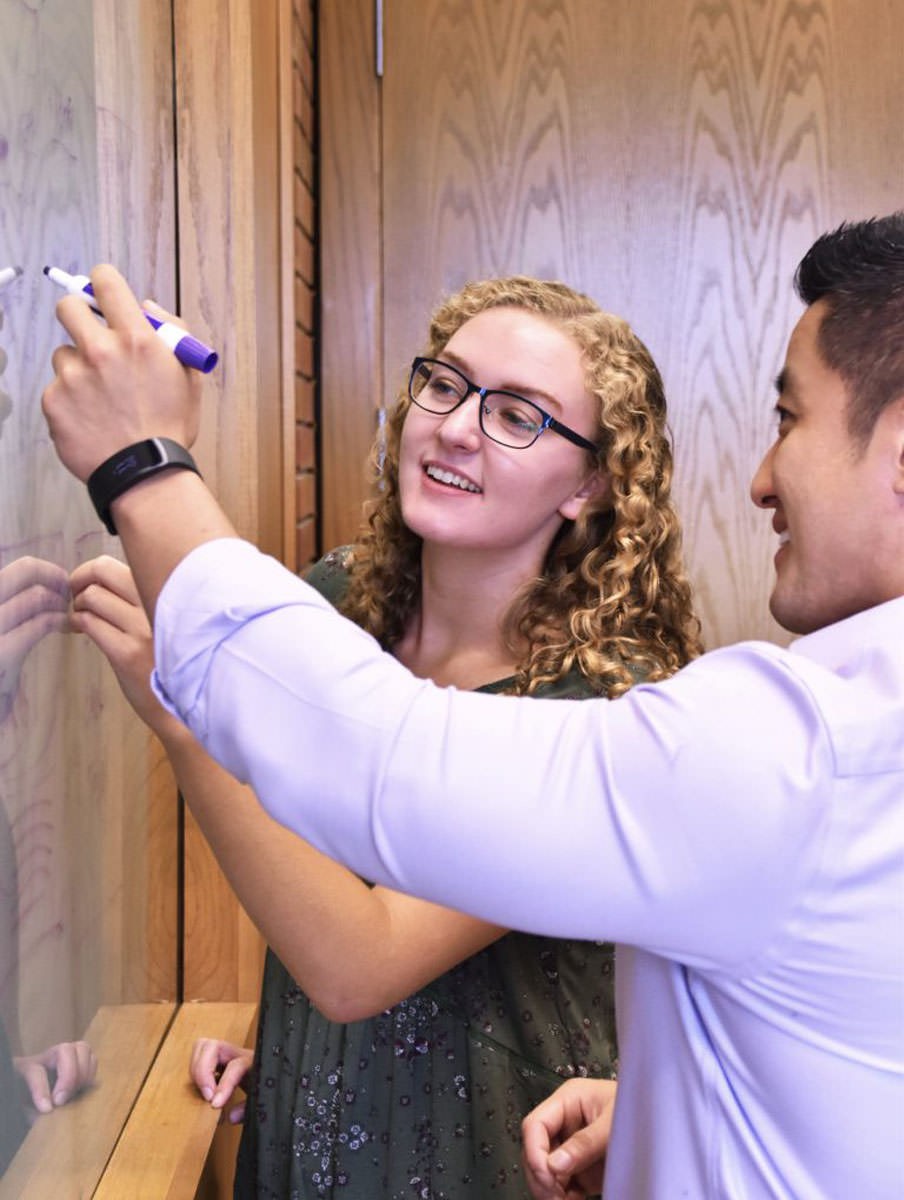A little about me, and how I came to be a part of the Arkansas Fellowship: I am cursed with the tendency to overcomplicate everything. I decided that my post-graduation job hunt would be a departure from that norm. So, I applied for one job, received one job offer, and accepted it immediately. I packed up the 2003 Toyota Camry, and settled down in Fayetteville, Arkansas.
The job just so happened to be the “Marketing Projects Lead” at a cloud-based eFile tax services company that was in the process of rebranding from TechAtlantis to Zenwork, and had just added another eFiling tax platform to its already robust collection.

Zenwork’s Headquarters on the Fayetteville Square.
Zenwork, a household name among small business owners, accountants, and accounts payable departments, offers a host of tax compliance solutions. Anyone who is responsible for anything from 1099 forms for tracking vendor payments to 2290 forms for paying heavy vehicle utility taxes comes to us for help with their eFiling process. Our most popular “Software as a Service” is Tax1099, with over 100,000 registered users who flood our site from mid-December to mid-March.
When I graduated in December with a degree in Marketing from Harding University, we had primarily talked about business-to-consumer marketing, and if any talk of taxes had slipped in to my Consumer Behavior or Personal Branding classes, I had definitely dozed through it.
I started work in January, at the height of compliance chaos.
The “what have I done” moment was pretty much inescapable.
Then what?
As you’re reading this, stop for a second to think about your “what have I done” moments, and ask yourself: How did you respond, what happened next, or what did you make happen next?
Well, I’ll tell you what I did, and you can let me know what you think.

Geneva works through a company problem at Zenwork Headquarters.
Question Quickly
Setting yourself up for success sometimes means showing your hand. So, you don’t know what an ERP is. Get yourself in the habit of asking questions as soon as you can, in as much detail as you can. This lets your coworkers know where you’re at, what you’re thinking about, what you’re leaning into. Maybe most importantly, this helps coworkers point you in the right direction, and help you become better targeted. There was a lot I needed to know about ERP, but with whatever knowledge you’re seeking, keep asking questions to find out what you need.
Research Rigorously
Once I’ve caught the scent, I chase it down. This can be a bit of a wild goose chase at first. Give yourself the liberty to cast a wide net. Don’t forget that some of your value as a new hire is your new perspective. Don’t be timid about hunting down new leads or new ways to apply your research to company goals. Your company invested in you and your perspective, and the fresh and researched view you can offer is a part of their return.

Frack for Facts
While initial research is a tire-kick here, a tire-kick there, at some point you need to zero in and really inspect the information you’ve found. It’s easy for me to go through the time and effort of researching, then shrug my shoulders and say, “I’ve got the gist.” Make the final push from pecking around to unearthing the value-add. What specifics enhance your contributions to the team? How does the information you’ve researched changed your approach to the problem?
This process might have a lot of overlap with your own; it might be completely opposite from your approach. At the end of the day, the important part is that you do approach. Don’t let your “what have I done” moment be a wall, a pit or an excuse to keep you from growth.
Turn your “what have I done” into “what can I do.”

